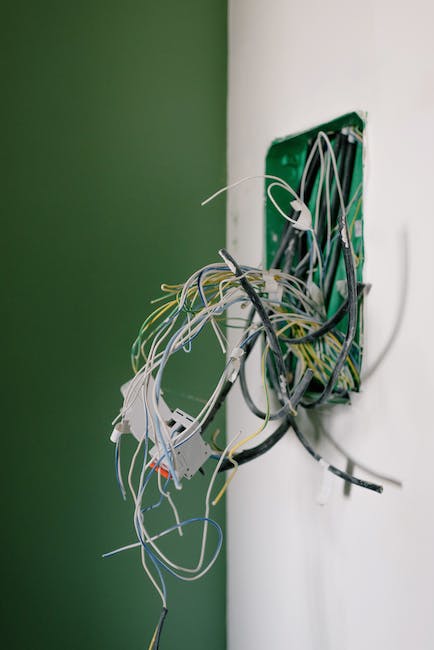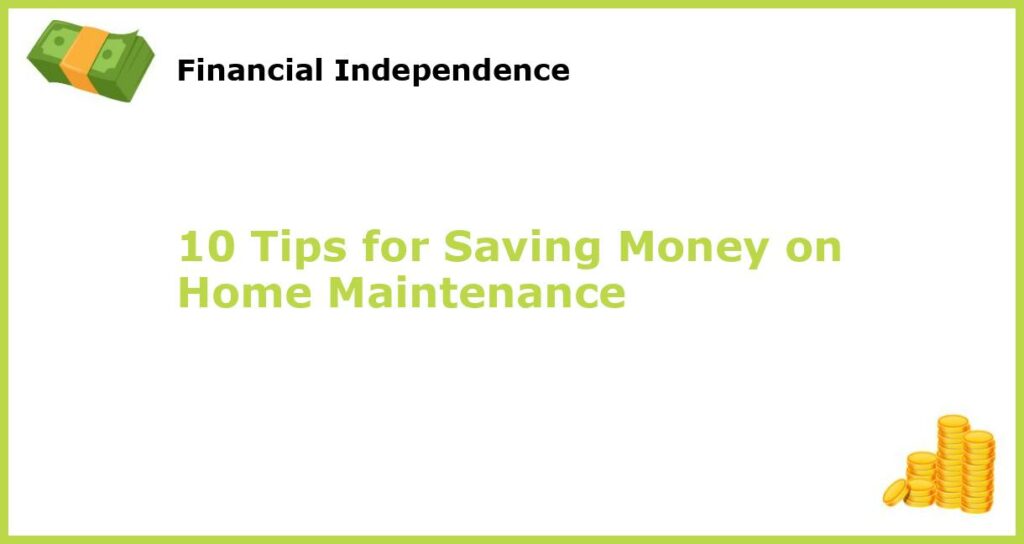Home maintenance is essential, but it can be expensive. While it might seem easier to put off that leaky faucet or drafty window, procrastination can lead to bigger and more expensive problems later on. Thankfully, there are ways to save money on home maintenance without sacrificing quality.
1. Do the work yourself

One of the best ways to save on home maintenance costs is to do the work yourself. With the abundance of YouTube videos and home repair guides available online, you can learn to do just about anything on your own, from fixing a leaky faucet to replacing a light fixture. With a little patience and a willingness to learn and make mistakes, you can save hundreds or even thousands of dollars by doing the work yourself. Additionally, you can feel a sense of pride and accomplishment in taking care of your home.
2. Look for deals on supplies

When you do need to purchase supplies for your home repairs, shop around for the best prices. Check out home improvement stores, online retailers, and discount stores for deals and discounts on supplies. Don’t be afraid to ask for price matches or haggle a little bit. You can also try purchasing supplies in bulk for more significant savings. Make sure to read the labels and reviews to ensure the products’ quality, durability and compatibility.
3. Keep up with regular maintenance

Maintaining your home regularly can save you from costly repairs down the road. Keep up with routine tasks like cleaning gutters, changing air filters, and sealing windows and doors to prevent drafts and leaks. Ignoring these tasks can lead to more significant problems, such as water damage, mold growth, and higher energy bills. By taking care of your home regularly, you’ll not only save money but also extend the life of your property and its components.
4. Hire a professional for big jobs

While it may be tempting to tackle a big home repair job on your own, sometimes it’s best to hire a professional. If you don’t have the skills or knowledge to do the job correctly, you could end up causing more damage and costing yourself more money in the long run. Hiring a professional may cost more upfront, but it can save you time, prevent further damage, and ensure the job is done correctly the first time around. Make sure to research the company or service you’re considering and ask for referrals and guarantees.
5. Check for warranties

If you need to have a major appliance repaired or replaced, check to see if it’s still under warranty. Many appliances come with warranties that cover repairs or replacement for a certain period of time, which can save you hundreds or even thousands of dollars. Don’t forget to read the terms and conditions and ensure that the warranty is valid, how long it lasts, and what it covers.
6. Invest in energy-efficient upgrades
Upgrading your home to be more energy-efficient can save you money in the long run. Consider replacing old appliances with newer, more efficient models, installing a programmable thermostat, and upgrading to energy-efficient windows and doors. Along with reducing your energy bills, these upgrades can add value to your property, increase your home’s appeal, and provide a more comfortable living space.
7. Use coupons and discounts
When hiring a professional for home repairs, look for coupons or discounts online or in local publications. Many professionals offer discounts to first-time customers or for jobs completed during certain times of the year. Don’t be afraid to shop around and ask for different quotes. You can also check with your homeowner insurance provider to see if they have any preferred maintenance or repair companies and whether they could provide you better deals or flexible payments.
8. Do regular inspections
Regular inspections of your home can help you catch small problems before they turn into big, expensive ones. Take a walk around your home once a month and look for signs of wear and tear, leaks, or other issues that need attention. Inspect your roof, siding, plumbing fixtures, hardwood floors, and appliances for any signs of damage or aging. Check the forecast and prepare for any weather-related risks in advance, such as snow, hail or windstorms. Remember to read the instruction manuals provided with your equipment to understand the recommended frequency of maintenance and seasonal needs.
9. Consider DIY cleaning solutions
Cleaning your home doesn’t have to mean buying expensive, chemical-laden cleaning products. You can save money by making your own cleaning solutions using simple ingredients like vinegar, baking soda, and lemon juice. Not only are these solutions more affordable and eco-friendly than their commercial counterparts, but they are also less toxic to you and your family. Additionally, you can customize the scent or level of cleaning power to suit your personal preferences or current cleaning needs.
10. Be proactive
Don’t wait until something breaks to address it. Be proactive about home maintenance by taking preventative measures like installing a sump pump, sealing your foundation, and keeping an eye on your home’s exterior. You can also invest in home warranty memberships or services that serve to safeguard your home year-round. By identifying and addressing potential issues early on, you can save yourself the stress, time, and cost of dealing with significant repairs down the road.







